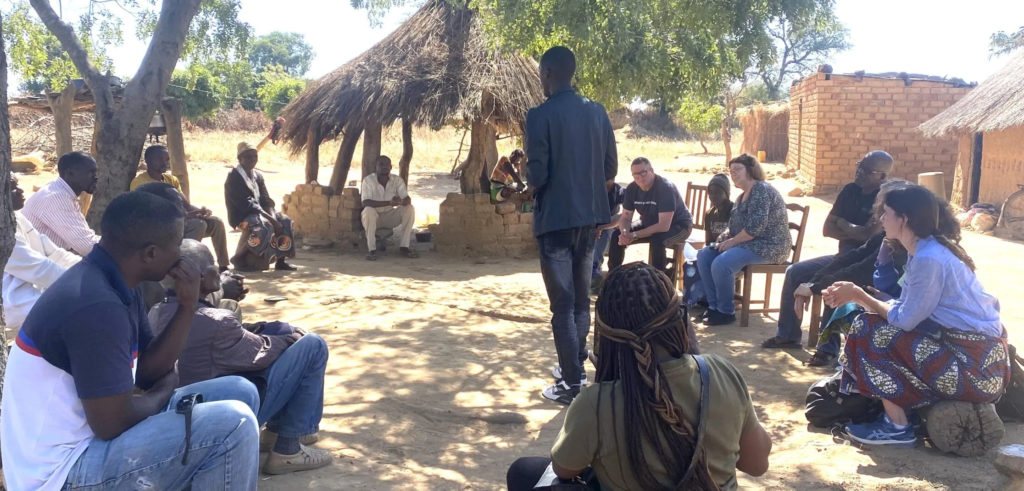
Any Western researcher who had conducted field studies overseas is likely familiar with the terms “parachute science” or “colonial science.” Both terms being interchangeable, they are defined as researchers coming into communities to conduct their work without appropriately acknowledging the importance of local expertise.
UBC Faculty of Forestry PhD candidate Alida O’Connor, who joined the Faculty in 2019, wanted to ensure any international fieldwork she conducted would incorporate a more meaningful approach with equitable collaborations integrated into every step in the process.
“It’s always been my goal to work in research settings where we were truly collaborating with scientists and people who live in the landscapes we are studying. My international fieldwork, which is focused on understanding the relationship between land-use priorities, decision-making power and collaborative natural resource management, has allowed me to do just that.”
Working in Zambia
In spring 2022 O’Connor journeyed to the Kalomo District in southern Zambia, also known as the breadbasket district, where she spent three months with a local team who helped her with Tonga translations, co-developing research questions, identifying study sites and so much more.
Her work is part of a joint initiative with UBC Forestry, Centre for International Forestry Research (CIFOR) and CIFOR’s large-scale project – Collaborating to Operationalise Landscape Approaches for Nature, Development and Sustainability (COLANDS). O’Connor’s supervisor, UBC Forestry’s Dr. Terry Sunderland, head of the Sunderland Lab and a senior associate with CIFOR, coordinated the connection.
During her visit, O’Connor and her field assistant Emeldah Mwenda conducted many in-the-field key informant interviews and discussion groups with community members, traditional leaders and government representatives. She learned from communities about challenges with everything from a decline in soil fertility to food security.
Please visit the Faculty of Forestry website to read the full story.
Through Strategy 19: Global Networks, UBC is prioritizing and supporting collaborations that benefit the world and our partners—as well as creating value at UBC —and fostering new alliances in areas of shared, strategic importance.